I’ve been drawn to the topic of conspiracy theories lately. Read a few articles. And my brain is bubbling over, so I figured I’d write up what I’m thinking.
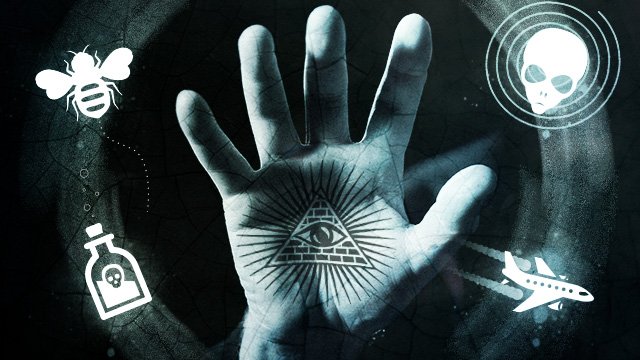
Source
What is a conspiracy theory?
Generally it’s a derisive label you give to someone else’s wacko belief. But it does have one specific quality: it’s a set of (false) beliefs meant to explain how something bad in the world was caused with conscious purpose by a group of powerful agents (here I mean beings with agency, not paramilitary folks dressed in black).
In other words, a conspiracy theory is an attempt to overcome a sense of unfocused, pervasive dread and anxiety by reclaiming a feeling of control. (Though this aspect of control does have certain paradoxes when we look closer, as we’ll see below.)
Take the example of one early conspiracy theory that led to some horrific results: a plague is killing off millions of people in Medieval Christian Europe. No one knows how to stop the plague or where it came from. People are dying left and right. Then, eureka! “It must be the Jews in league with Satan!” And so, more people are slaughtered, and anti-Semitism persists for hundreds of years, because the people back then didn’t have a germ theory, and they didn’t know fleas riding on the back of rats were the ones spreading the disease.

Source
Now, that last sentence comes across as a bit sarcastic. But the people back then were dealing with a serious - deadly! - problem, and they did not have the knowledge or power to solve that problem. It is the exact recipe for pervasive dread arising from a feeling of lost control. That’s a gut-wrenching feeling!
These days - at least in the US - we don’t quite have the excuse of a problem that can inspire as much terror as the Black Death. (And we’re not slaughtering any group to solve our problems, so that’s a definite improvement.) Yet we do have plenty of conspiracy theories running around out there in the memosphere. Why? And how do we stop it? (Maybe it’s a conspiracy?)
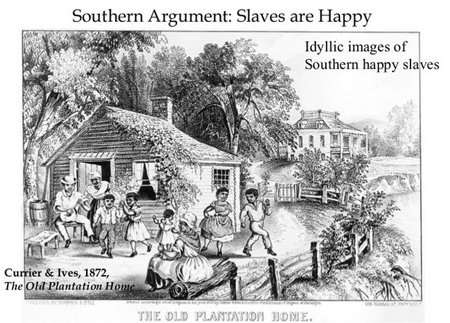
Source
It’s 1853, and you’re a young black man living in South Carolina. You wake up one day, and you decide you’re going to travel to Toronto. You heard it’s beautiful this time of year. You mention this to your buddy waking up on the pile of straw next to you in the barn, and he looks at you like you’re crazy: “You can’t up and leave, boy! You gunna get shot!”
You smile and shake your head. “That’s just a conspiracy theory, Tom. There’s no coordinated group of white folks out there trying to keep us here as slaves.” And as you walk off the plantation, you chuckle sadly as you think about all the friends and brothers you’re leaving behind. They’re caught up in some irrational belief system that they just can’t get past, but you’ve pushed through it to find the enlightened tru-- --and then some hooded fucks on horseback blow your head off with a rifle.
Okay, so, yeah. It does happen. People do work together, consciously, to achieve their ends. Some people work together to build skyscrapers. Other people work together to keep their slave economy going. OPEC sets gas prices if it can. Etcetera.
Groups can and do attempt to impose their will on the world and the people living within it.
But surely there is a difference between our idealistic young black man above, and people who look askance at Flat Earthers. From the outside, it’s easy. The flat earth idea is false, the slave economy and power structure was real. But how is it different for the person within the flat earth perspective? Admittedly, that’s a question that bugs the shit out of me.
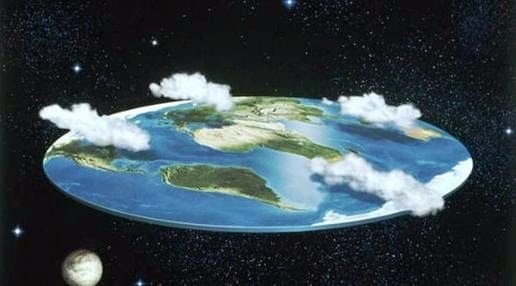
Source
Another question is how or why did that person find himself within the Flat Earth perspective? Clearly, no one believes my anecdote above - no slave woke up in the Antebellum South and thought, hell, all I need is a paradigm shift to achieve freedom. Part of this is due to another important quality of conspiracy theories: it’s believed that the people involved are keeping their machinations a secret. While there were some who attempted to deflect and hide some of the more horrific practices of the time, nobody in the slave-owning South was attempting to keep slavery a secret.
But we have concrete evidence that there are people living in the 21st century who believe that the earth is flat, and, perhaps more astonishingly, that there has been a coordinated disinformation campaign lasting centuries to hide this fact. Why?

Source
For me, this particular conspiracy seems to fall outside my definition above. If these belief systems are constructed to stave off a feeling of despair that arises from some inexplicable tragedy, what problem is this idea meant to solve? How does a belief in a “flat earth” give back control to the believer?
First, let’s look at another conspiracy theory: the American government was responsible for 9/11 (and I think we can view the theories about the JFK assassination in a similar way). Terrorists take out the Twin Towers in a spectacular feat of suicide - like something out of a movie - and kill thousands. It’s a shock for millions, and certainly a valid cause for fear and anxiety.
But it’s an explicable one: nineteen people planned the attack and executed it. A terrorist group claimed responsibility. And there’s good reason to believe that the success of the attack was attributable not just to the terrorists’ will and skill, but also to some incompetence and poor skill on the side of the American government.
Is this a satisfying explanation? I mean, it doesn’t make me warm and fuzzy, but what explanation would do that? It was a tragedy. We do what we can to avoid similar tragedies in the future. Such is life.
But for some, maybe this isn’t enough. For some, the fact that random no-names could achieve something so powerful and horrific just makes no sense. And if it does make sense, it means that similar tragedies can and will happen in the future. And that’s a frightening thought.
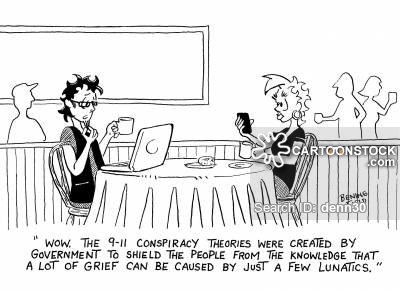
Source
You know what would make more sense? For a result this powerful, it must mean that powerful people were behind it. No Third-World peasants could have achieved such a thing. It must have been the US government. Yeah. They wanted to use it to excuse a bunch of laws and policies and wars that they’d never be able to do without 9/11 as an excuse.
I mean, it’s a narrative that I can understand. We’ve certainly seen it in movies enough. I can see how people would be attracted to it. And I also know that, when one has a belief, it’s easy to cherry pick facts and ideas to support it, so a detailed conspiracy theory builds from there.
What I find difficult to understand is how this theory gives a greater sense of control to the believer than the actual terrorist theory (also a conspiracy, by the way). In my mind, a super-powerful government willing to kill thousands to, more or less, take over the world, is a much scarier threat than the possibility of a group of average people executing another similarly complex plan in the future. The latter would seem to give me a surer feeling of control – there are things we can do to avoid that. But an omnipotent government set on world domination? Not so much.
So, maybe my premise is wrong. Maybe people are not drawn to conspiracy theories to feel a greater sense of control.
Or.
Maybe there’s another possibility: maybe I and the people drawn to conspiracy theories approach the world in fundamentally different ways.
Chaos vs. Order
What’s more frightening: chaos or order?
Presented that way, I think most of us would prefer order. But what is order? Is order a thing outside there in the world? Or is order a lens or feeling that we place over that which we perceive in objective reality? Newsflash: it’s both.
There are many “mystics” and foolosophers out there who believe that order is an illusion, that it is nothing more than our projected perspective and desire glommed onto a sea of unknowable being. I, however, approach the question from the opposite end. To quote my younger self, “Chaos is merely order that is not yet understood.” While we may not be able to see the causal chain that leads to the effect (disease-ridden fleas, for instance), it does not mean that the causal chain is not there.

Source
The great thing about order is that you can use it to make valid predictions. The scary thing about chaos is that it leaves you no way to make a valid prediction. If you cannot make a prediction about the world, you have no way to get what you want. You have no direction, no plan, no meaning.
Said another way, order is knowledge. And knowledge is power.
And I know everyone loves to throw that quote around: knowledge is power. And it starts to sound silly, because while knowing a bunch of facts may allow you to win Jeopardy!, it’s not normally going to make you rich or get you laid. But knowledge is not just about recalling static facts - it’s about using truth to manipulate the world. It’s about getting what you want.
Therefore, we should assume that a belief which promises order more than it promises chaos should lead to less anxiety and despair. And, consequently, such a belief will be more attractive to a conscious agent.
Looking back at our 9/11 example, which theory promises more order? One could argue that the American-government-conspiracy-theory does just that. While an all-powerful government is hard to defeat, at least it’s easy to point out and see it coming. The possibility of random terrorists springing up anywhere and everywhere can feel a lot more chaotic - a lot harder to plan around.
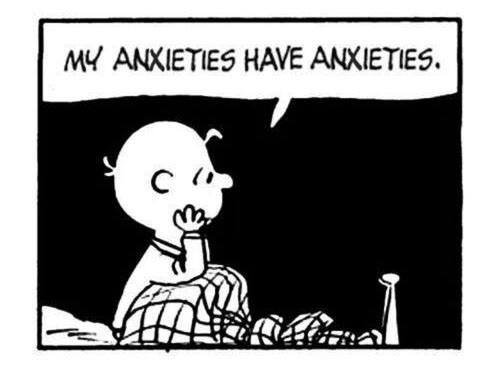
Source
Okay. I think I’ve rambled myself beyond most readers’ patience, and I haven’t even gotten to the gods and common sense mentioned in the title. I’ll continue this in a PART II!
References
Below are three articles I read recently that influenced and inspired my thoughts on this topic. Additionally, I’d highly recommend the book Fantasyland by Kurt Andersen.
Conspiracy Theories: A Quasi-Religious Mentality - rather long and academic, but has a lot of valuable info
Why People Believe in Conspiracy Theories - and How to Change Their Minds - a good read, but doesn't quite live up to its title
I Watched the Entire Flat Earth Convention for My Research - again, a worthwhile read, but it still left me wanting answers. (And so this blog post.)
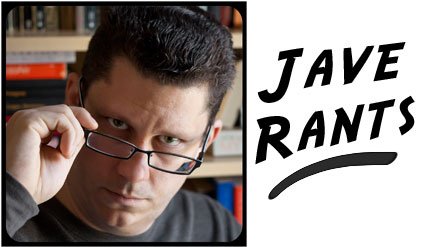
Of course we should question what we are told, but you have to trust some sources to get by in life. I don't believe that all politicians/reporters/scientists are out to lie to us, and it may just be a small minority who do really bad stuff. There are some in power who want to destroy our trust in any authority, or at least so my own conspiracy theory goes.
As for flat-earthers, I've given up on talking to them as it's a waste of my time.
Agreed. Though I'd suggest that the audience for this kind of thing does trust some sources - they're just bad sources. It's the breakdown of trust in institutions that is part of the reason for the greater proliferation of this kind of thing - which I haven't yet gotten into. However, one of those institutions may be the granddaddy of all conspiracy theories :) -- and I'll get into that too.
This is a thought-provoking post. But I find major flaws in your argument. You've pointed out in your post that not all "conspiracy theories" are nonsense.
So instead of lumping all the people who believe in "conspiracy theories" together, whether it's about the "flat earth" notion, the JFK assassination or 9/11, it might be more pertinent to discuss why some people think critically about these and other issues, while others prefer to unquestioningly believe what they're told by an "authoritive source" that they trust, whether that source is a TV news journalist, a government leader or a blogger writing about the shape of the earth.
The "conspiracy theorist" label is, as you say, a derisive one, and it's generally used to silence any questioning of the establishment narrative by lumping it together with - as you say:
Re-reading this, and I think I may have misunderstood part of what you were saying. While it's true that people do conspire, for the purposes of this post, and for my thinking in general, I would not refer to those instances as "conspiracy theories". "Conspiracy theory" is - by tradition, if not by definition - meant to apply to false beliefs about conspiracies. (Though I realize that, many conspiracy theorists have tried to "reclaim" the term, like homosexuals did with "queer", etc...)
Your reference to homosexuals is interesting, because there are parallels. Homosexuality used to sometimes be described as a psychological condition that could be treated with therapy, and I think the same kind of approach is sometimes taken towards people who believe in or are interested in "conspiracy theories". It is undermining, suggesting that they are in the grip of a psychological malfunction.
And just as male homosexuals used to be portrayed as effeminate "fairies", and lesbians as "butch", "conspiracy theorists" are often portrayed as nutters who will believe anything, whereas in reality there's an enormous diversity in the types of people who are interested in exploring "conspiracy theories", just as there is enormous diversity in the gay community.
It seems to me that the term "conspiracy theory" is given to incidents that have a low level of credibility, or that a lot of people are questioning. The people who dare to question or investigate those incidents are lumped together with the people who present wild theories to explain them, without looking for evidence.
So if I say that I've always been sceptical that Osama Bin Laden and a gang of terrorists could have carried out the destruction of the twin towers without assistance from high-level insiders in the US, I'm likely to be lumped into the same category as someone who firmly believes that it was carried out by reptilians from Mars!
Absolutely - I agree there is lots of diversity within the "conspiracy theory" community. My thesis, though, is that all of that diversity is inspired by a certain mode of thought (and if I ever finish part II, you'll get a better sense of what I'm talking about).
And, frankly, that mode of thought will apply to many, if not most, people, well beyond those caught up in the "conspiracy theory" community.
As to the difference between Reptilians and non-Osama humans, I'd guess that there's less of a difference than you think. In that case, it really just comes down to one's degree of distrust.
You make reasonable points.
For me, however, the purpose of my writing this was not to prove or disprove particular conspiracy theories. I'm more interested in the over-arching concept by itself. Presumably, even if there are people who think a particular example happens to be true, they concede that other examples are false or "wacko". (Though, I know there are studies showing that conspiracy theories tend to clump in specific brains...)
My intention is not so much to lump "people" together, but rather, to lump certain thought processes together.
We are waiting for the next article.
STOPCongratulations! This post has been chosen as one of the daily Whistle Stops for The STEEM Engine!
You can see your post's place along the track here: The Daily Whistle Stops, Issue #157 (6/6/18)
The STEEM Engine is an initiative dedicated to promoting meaningful engagement across Steemit. Find out more about us and join us today.